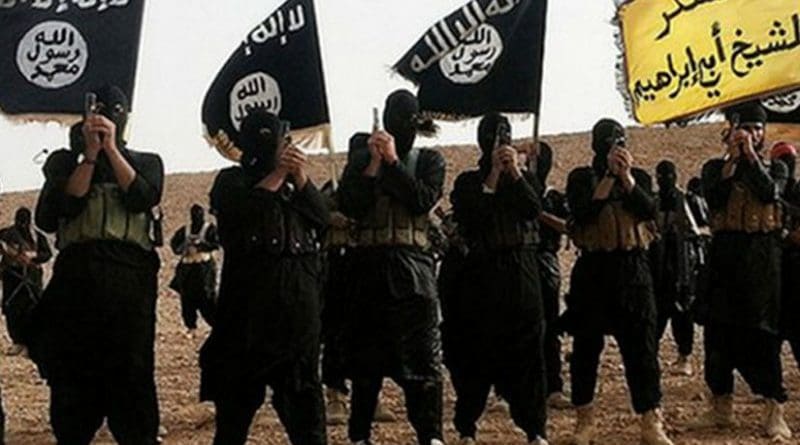Terrorism For One Is Jihad For Another: World Lacks Common Anti-Terror Platform – Analysis
By Anuradha Rai*
The deadly Paris attack by the IS on 13 November 2015 has once again brought the global society together to accept that growing terrorist network is a big security challenge and with that the realization that we need to stand in solidarity and deal with this problem. On 3 December, the Russian president, Mr. Vladimir Putin urged for a broad international front against terrorism.
In similar spirit, on 1 December 2015, Mr. Barack Obama declared that, “we all have a common enemy. That is IS…I want to make sure that we focus on that threat.” Paris attack has also brought other European states to stand against the Islamic state, with France, Britain and Germany giving their active support to the war against IS. Several European countries joined the U.S.-led anti-Islamic State coalition and introduced measures to monitor their radicalized youth.
All these issues and the call for solidarity against war on terror takes us back to the incident of 11 September 2001, when the US was attacked by Al-Qaeda and the global community came together to join US in the fight against terrorism. Since then, the world community has debated and discussed about terrorism on every front: the reasons behind terrorism and the measures needed to be taken to defeat terrorism.
Where yes, Al-Qaeda has been weakened, its leaders have been eliminated and it has become less effective now, but then, it has given birth to a new brand of international terror outfit- Islamic State. Looking at this fact, can we really conclude that terrorism has subsided or we should accept that it has grown to be stronger and more organized in the form of Islamic State?
According to a study done by the International Centre for the Study of Radicalisation on the battlefields of Syria and Iraq, there are thousands of fighters from various countries — over 1,300 from France, half this number from Germany, over 3,000 from Tunisia, and about 100 to 150 from Australia in the Islamic State. Furthermore, IS has its geographical presence in Syria, Egypt, Iraq, Algeria, Libya, Nigeria, Afghanistan, Pakistan, Saudi Arabia, Yemen, and have an organised military and civil bureaucracy.
Other than this, Islamic State, which is also referred to as IS or ISIS or DA’ESH, is believed to be actively smuggling deadly gunmen across the sparsely-guarded 565-mile Turkish border to further into richer European nations. Hence, I would prefer to go with the second line of thought. The war on terror has failed to curtail the growth and reach of terrorism and failed to dismantle the terror network.
Now the question that arises is that after spending many millions, and losing the lives of many thousands against this war on terror, where have we failed? We have all the big powers pledging to stand by heart and soul to end terrorism. The states are investing men and money to overpower the enemy. They have created a global intelligence sharing the information about the terror networks. It seems that we are doing our best to defeat terrorism, yet we fail.
But, the fact is that this is not what the states are doing. World community is not really standing in solidarity against terrorism, neither the states are giving their best to defeat the enemy. Even as they realize and consider terrorism as a common and global threat like the issue of climate change, the big and small powers are hesitant to work together.
In their recent statements, both, Russia and USA have highlighted the need to work together to defeat IS. However, these are mere statements and this verbal commitment does not reflect in their actions. While Russia is blaming Turkey for supplying oil to the IS, US praises Turkey and Mr. Obama, in a meeting with Turkish President Recep Tayyip Erdogan, supported NATO ally’s right to self-defense, and he pledged a solid U.S. commitment “to Turkey’s security and its sovereignty.”
Similar situation is in the case of Syria where we see a rift between US and Russia. Other than these two states, Europe is still hesitant to give its full support to war on terror. Asia is the worst affected by terrorism while simultaneously being a safe house for many terror networks. There are several states of Asia who have nurtured the terrorists to fulfill their policy objectives. Pakistan is a good example of it.
Hence, it is hard to create any solidarity on the issue of terrorism in the region. African nations have their own problems of civil conflicts and thus less keen to get involved in any further wars. Thus, we can say that there is little consensus on creating a single platform where all the states can come collectively to fight terrorism. More than a decade after the threat of terrorism was realized by the world community, we still lack a common consensus on question of defining terrorism. A terrorist in one nation is praised and admired as a jihadi in another.
Then, there is good Taliban and bad Taliban. States also differ on what is their terrorism and others terrorism problem. Unless and until these differences are overcome by the states and the world community stands in real solidarity with each other not merely in words but in spirit, the threat of terrorism will keep haunting each and every nation of the world and it will be hard to defeat it.
*Anuradha Rai is a Professor of Political Science at Rani Durgawati University, Jabalpur, Madhya Pradesh. She can be reached at: [email protected]

